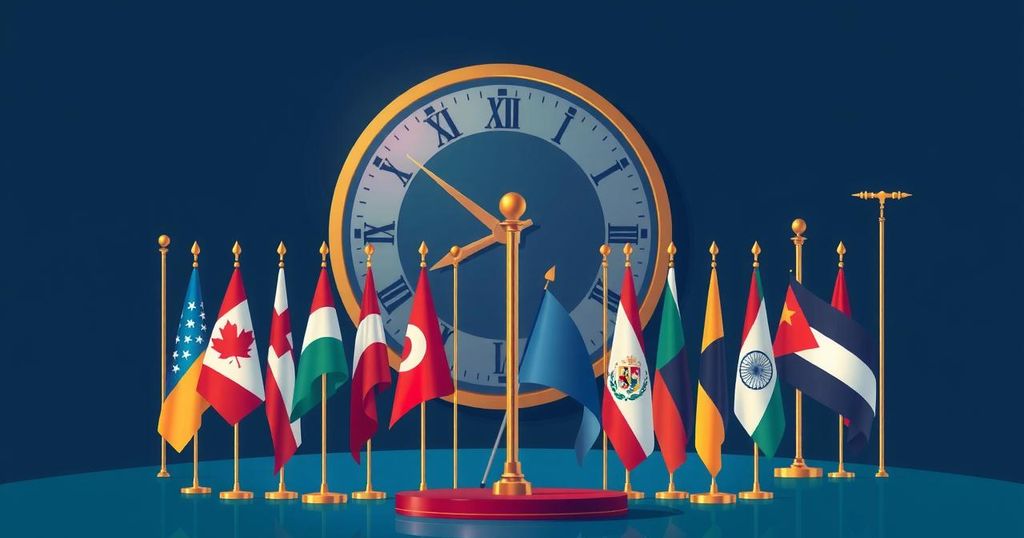Global news
ABU DHABI, ALAYNA TREENE, ASIA, BIDEN ADMINISTRATION, BRIAN HUGHES, CIVIL DISOBEDIENCE, CNN, FOREIGN POLICY, FOX NEWS, INTERNATIONAL RELATIONS, IRAN, ISRAEL, MIDDLE EAST, NATIONAL SECURITY COUNCIL, NORTH AMERICA, NUCLEAR POLICY, NUCLEAR WEAPONS, PUTIN, STEVE WITKOFF, UAE, UNITED ARAB EMIRATES, UNITED STATES, US, VLADIMIR PUTIN, WHITE HOUSE
Fatima Khan
0 Comments
Trump Sets Two-Month Deadline for Iran to Negotiate New Nuclear Deal
President Trump has set a two-month deadline for Iran to negotiate a new nuclear deal, communicating this through a letter to Ayatollah Khamenei. This ultimatum reflects Trump’s desire for diplomatic resolution over military action. Recent discussions with Russian President Putin further highlight international concerns about Iran’s nuclear capabilities.
President Donald Trump has issued a two-month deadline for Iran to negotiate a new nuclear deal, according to a letter sent to Ayatollah Ali Khamenei. The directive aims to exert greater control over Iran’s nuclear capabilities. The letter was delivered by Trump’s Middle East envoy, Steve Witkoff, to UAE President Mohamed bin Zayed Al Nahyan, who subsequently forwarded it to Iranian officials.
The National Security Council spokesperson, Brian Hughes, confirmed that President Trump expressed a strong preference for a diplomatic resolution to the nuclear dispute, warning that alternative measures could be considered if negotiations fail. Axios was the first outlet to report the letter’s contents, underscoring its significance in ongoing diplomatic efforts.
In a recent conversation with Russian President Vladimir Putin, Trump also explored the possibility of a nuclear deal with Iran, emphasizing the need for regional cooperation to deter future conflicts and prevent the proliferation of weapons. Both leaders agreed that Iran must never be allowed to threaten Israel with destruction.
Trump articulated his preference for a negotiated resolution over military action, which he remarked is his priority for dealing with Iran. He underscored, “It’s going to be a lot better for Iran” if negotiations occur rather than resorting to military measures.
Should Iran refuse to engage in direct talks regarding its nuclear program, the response from the United States remains uncertain, with military options not entirely dismissed by senior officials. Historically, Trump’s administration had taken a hardline approach, including withdrawing from the Obama-era nuclear agreement and authorizing military strikes against Iranian officials.
Ayatollah Khamenei has expressed skepticism regarding U.S. calls for negotiations, suggesting that such offers stem from a desire to dominate rather than resolve conflicts. He has described the insistence from Western states on negotiations as an attempt to impose their expectations on Iran.
In summary, President Trump’s two-month ultimatum to Iran for a new nuclear deal reflects his administration’s continued pressure on the nation regarding its nuclear ambitions. The diplomatic efforts emphasize the preference for negotiation over military action, though serious consequences may follow if Iran does not comply. The broader context of U.S.-Iran relations indicates a persistent tension, further complicated by regional considerations.
Original Source: keyt.com




Post Comment